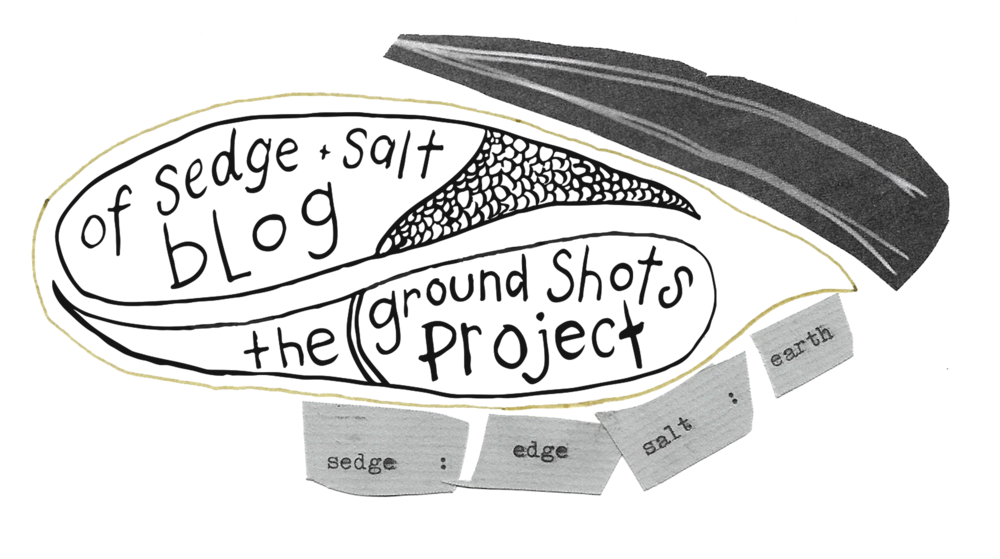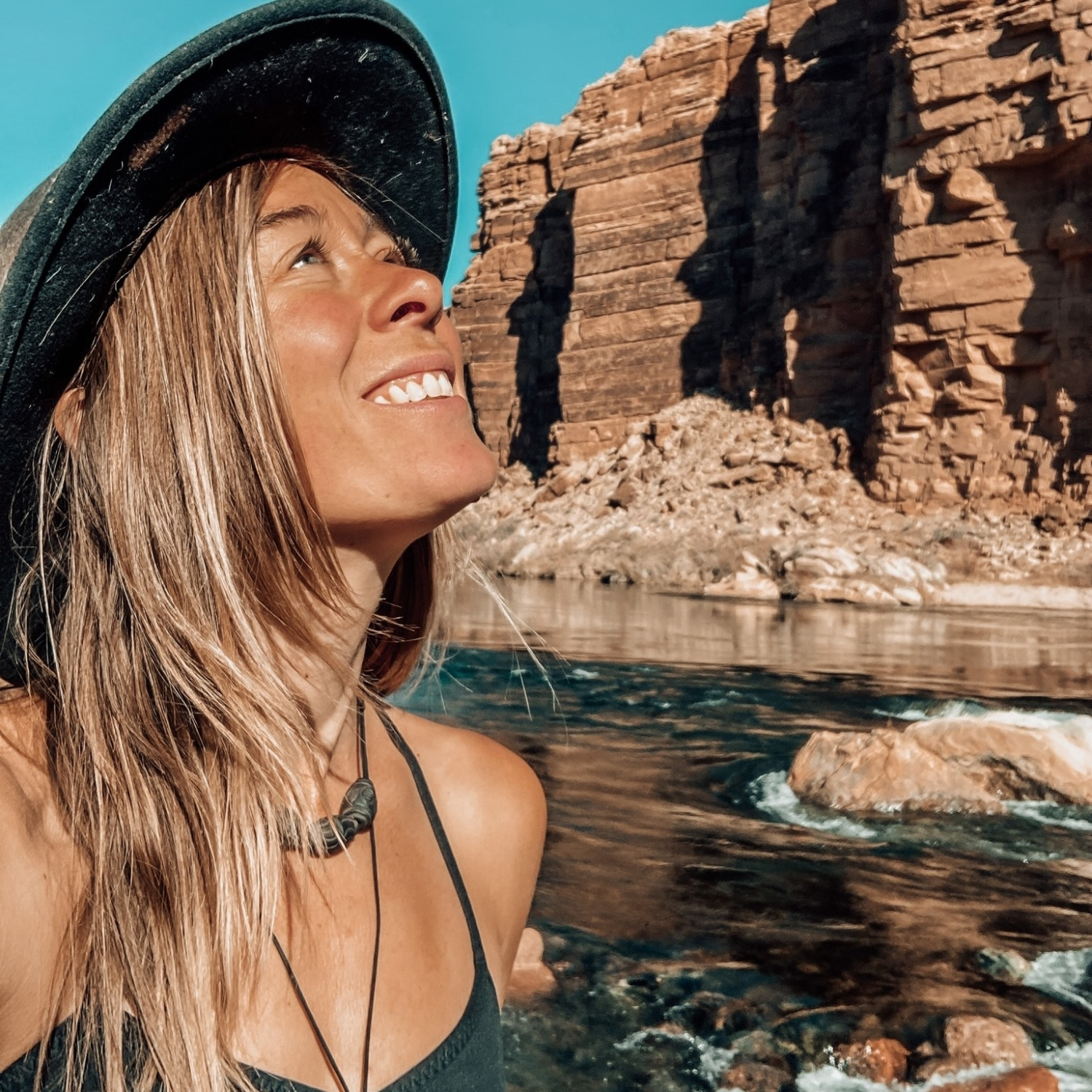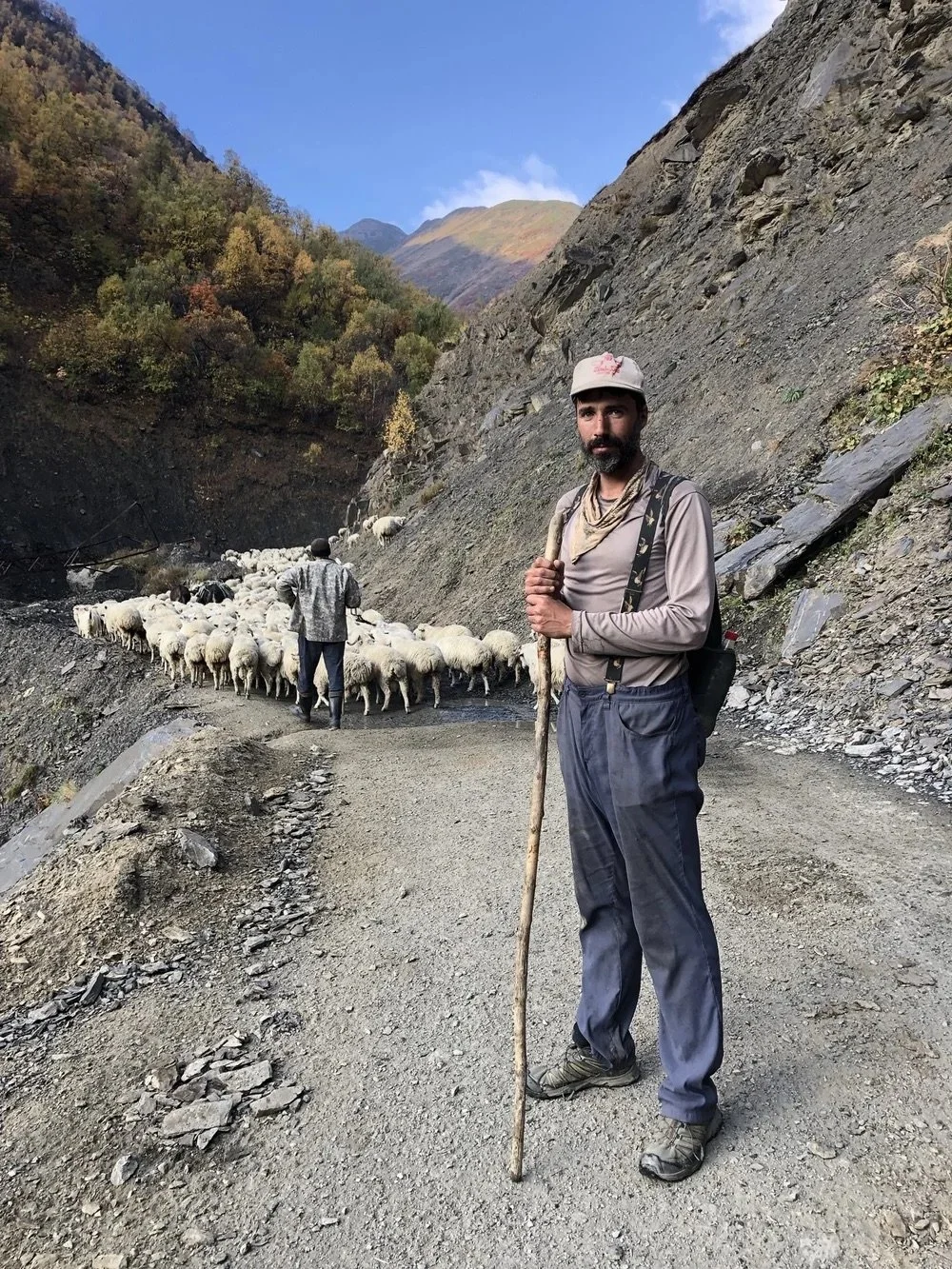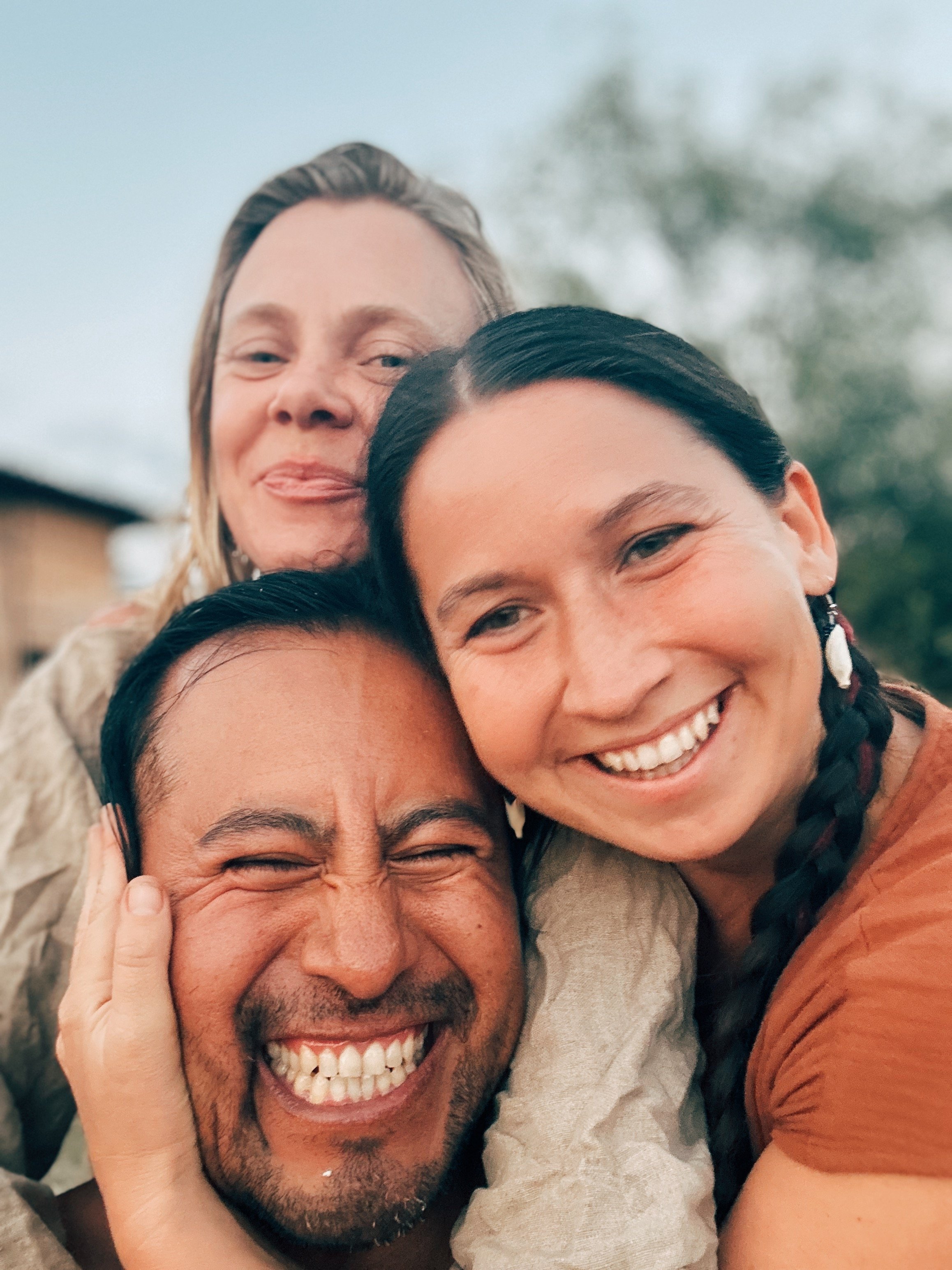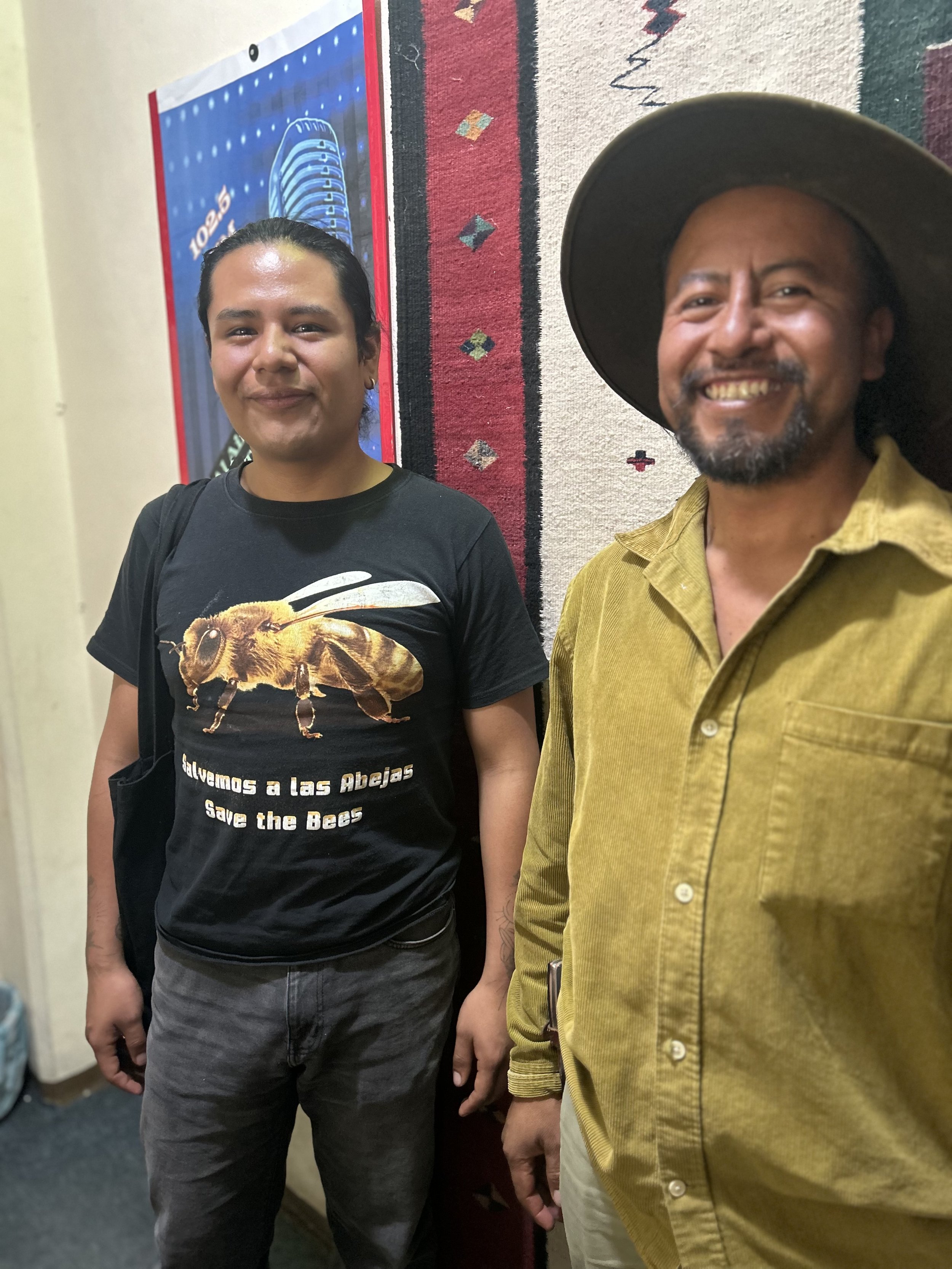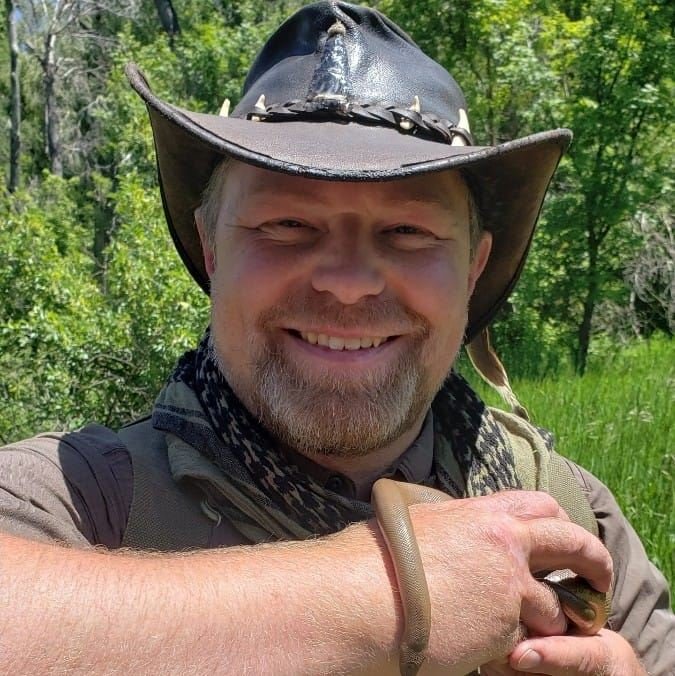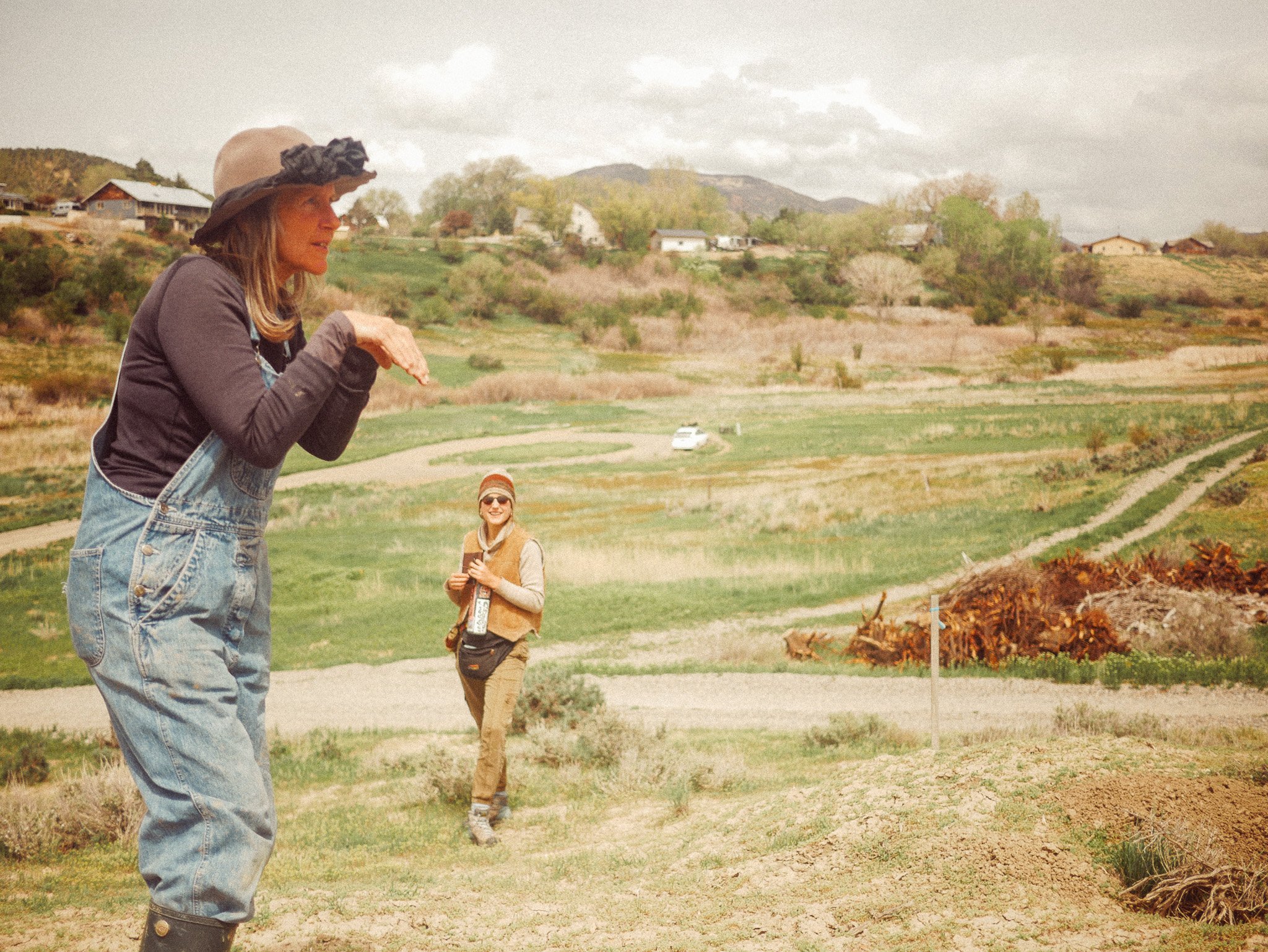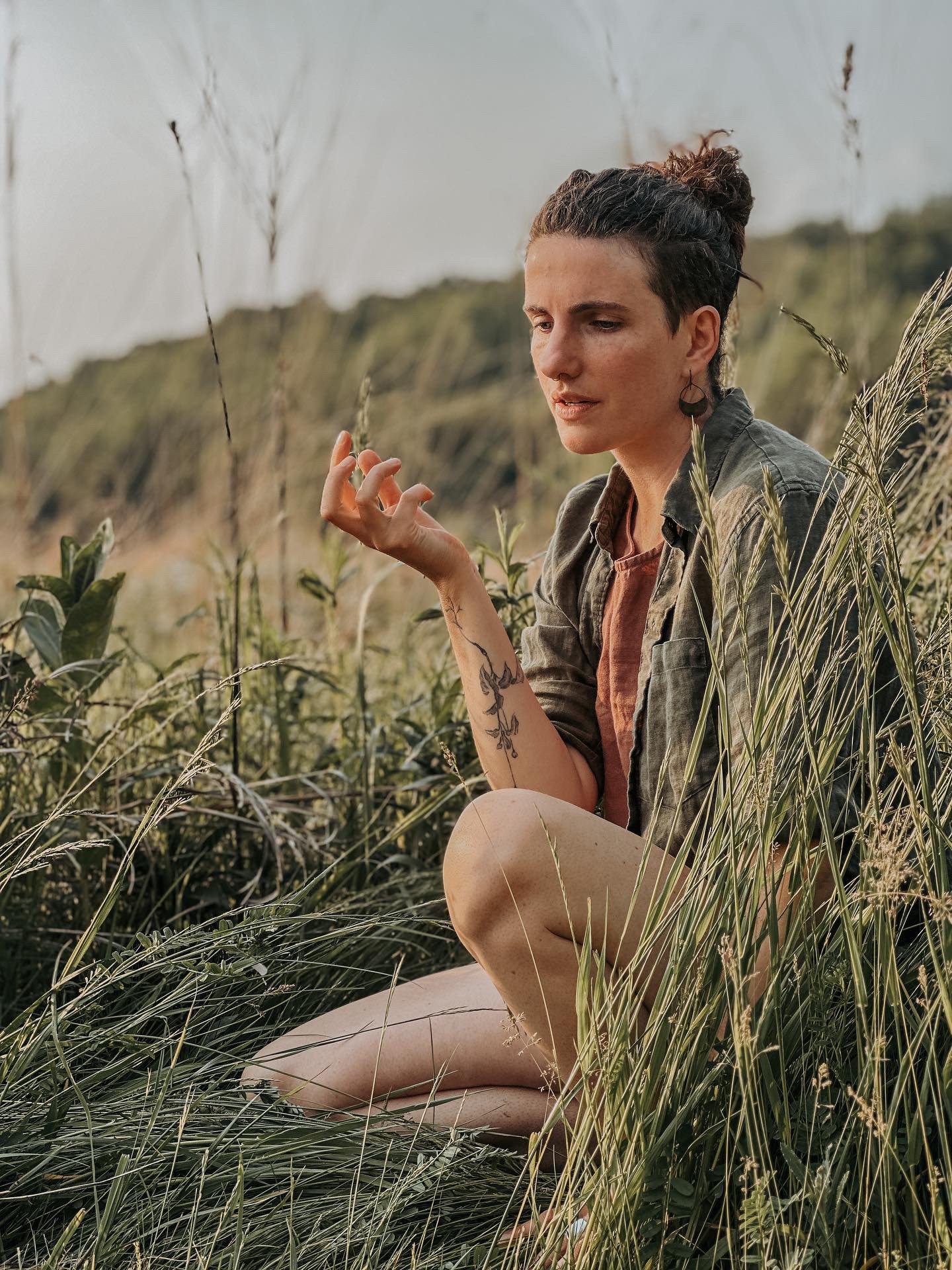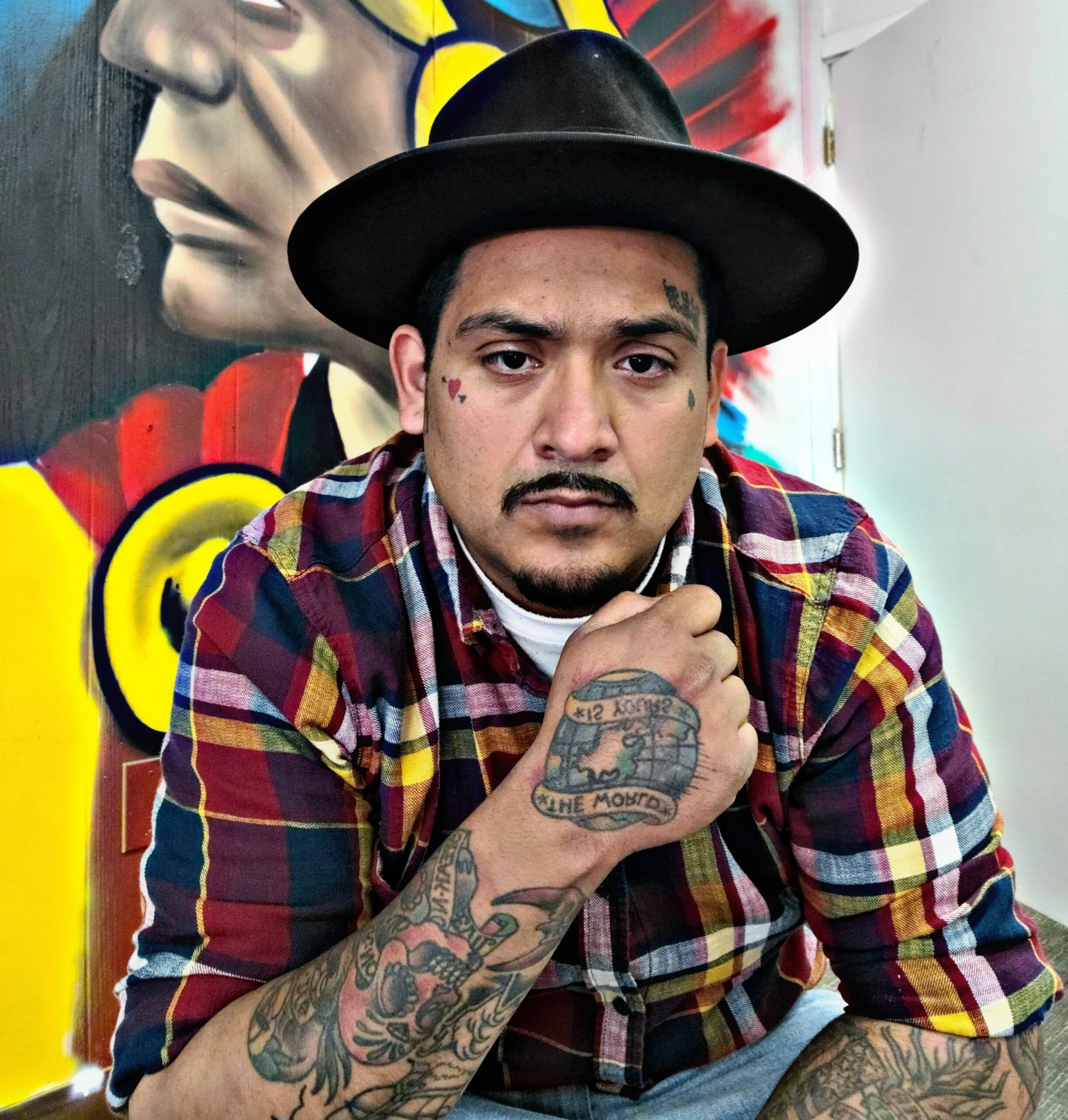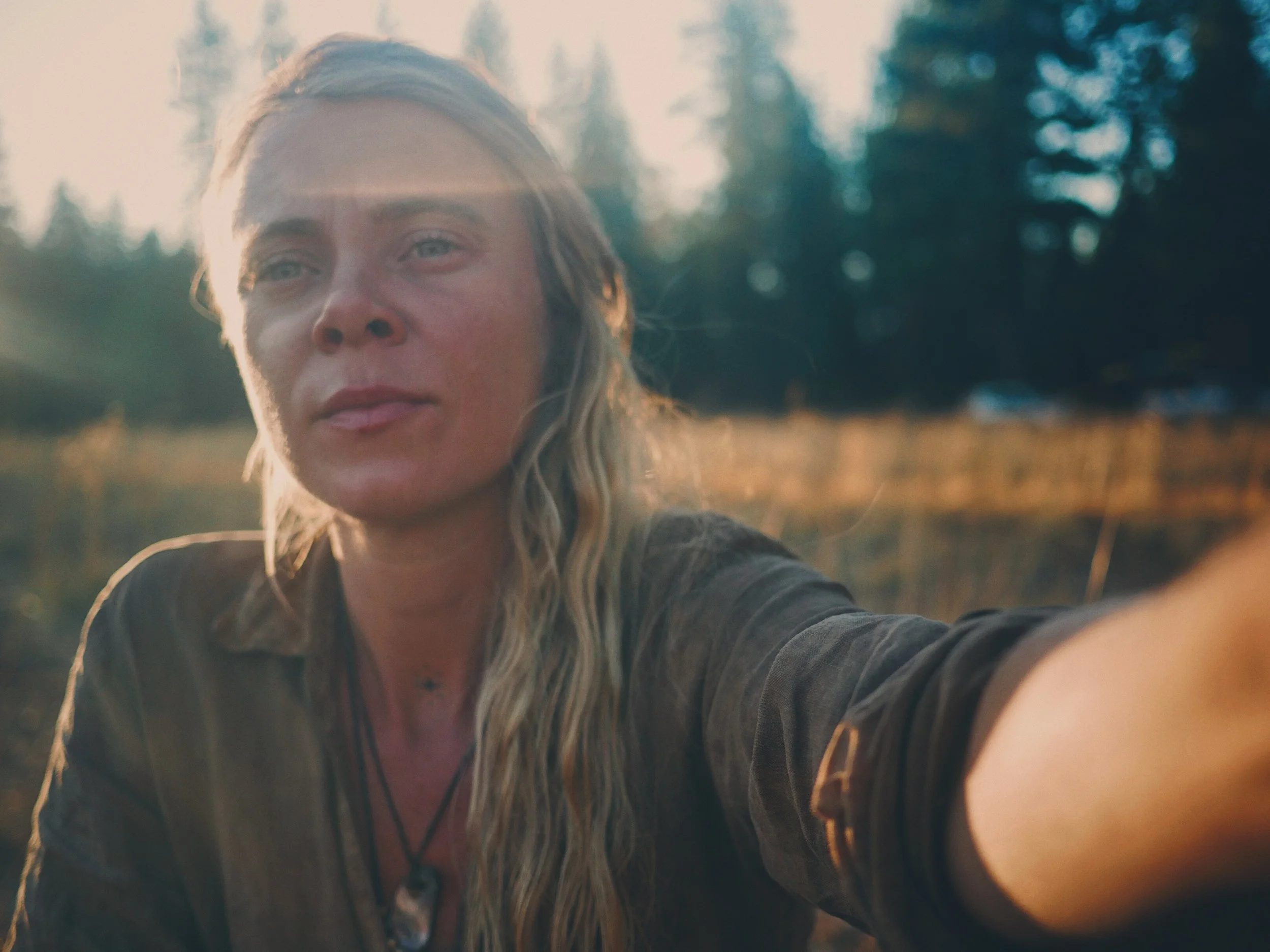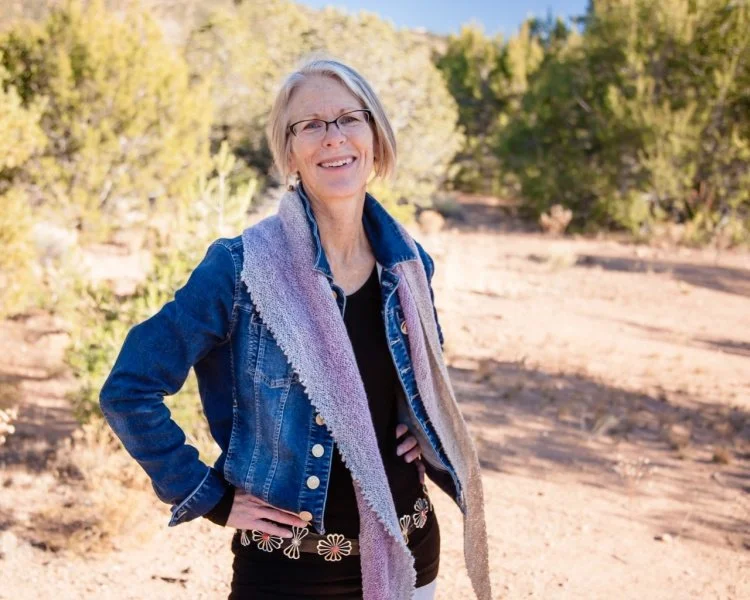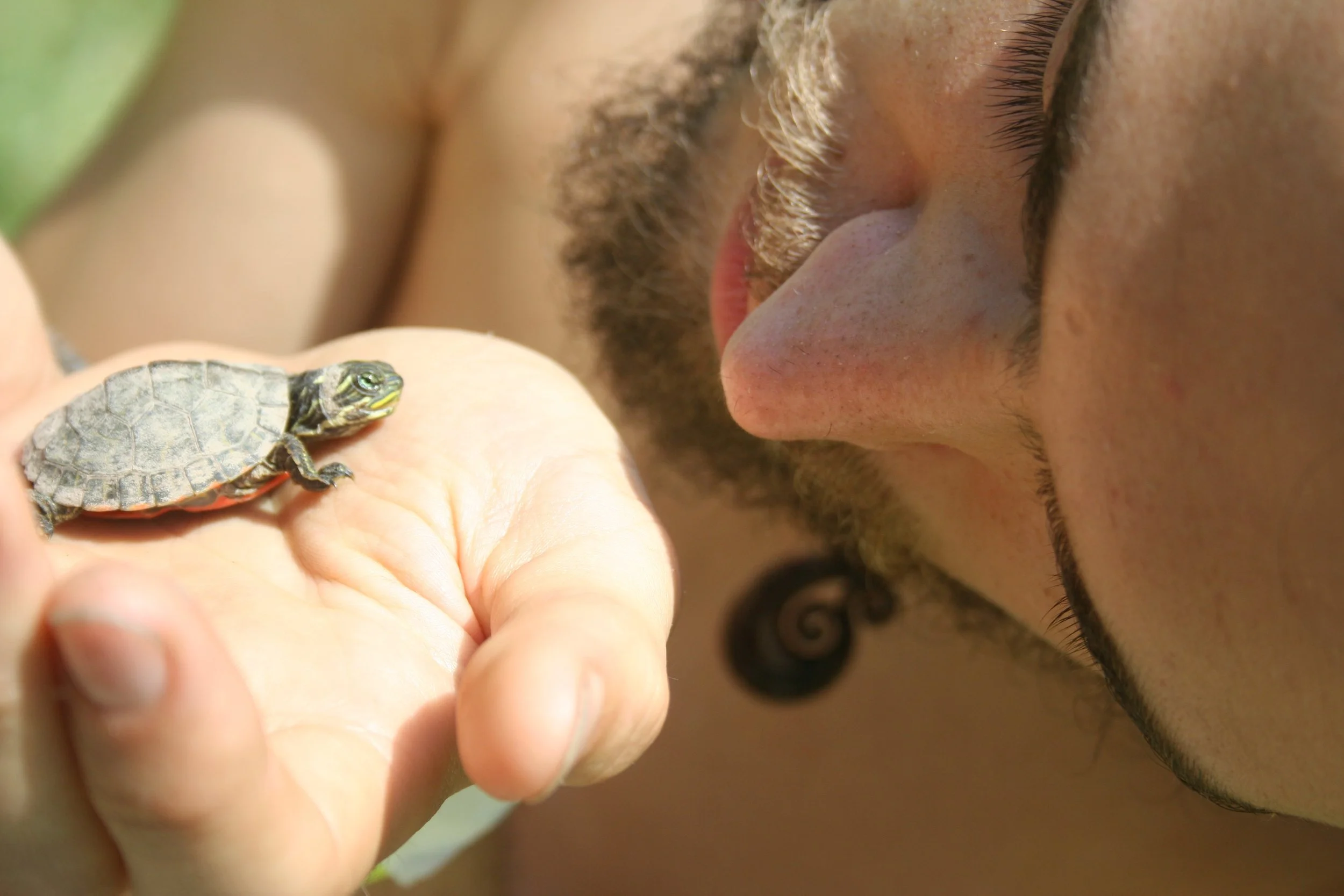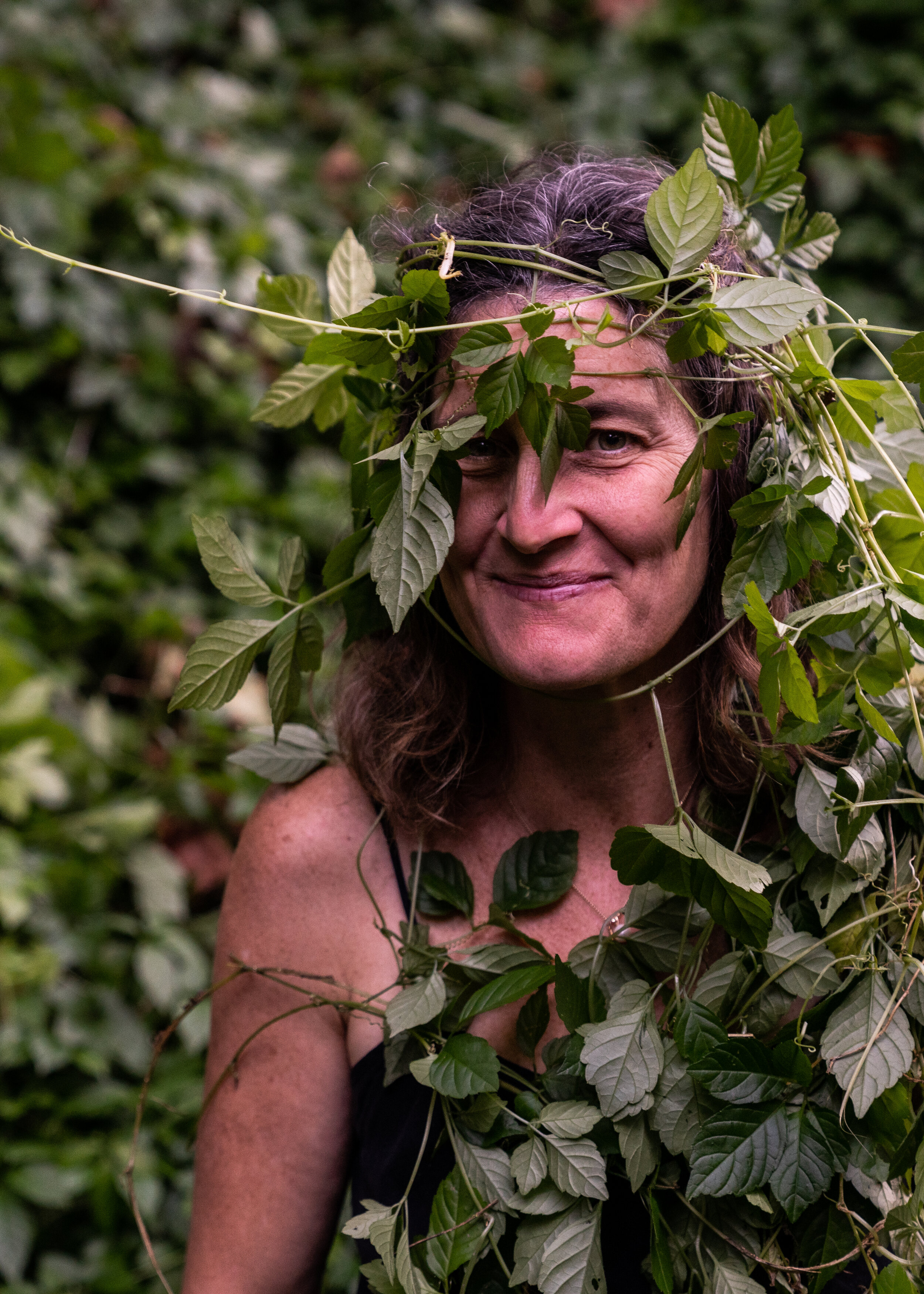Episode #65 of the Ground Shots Podcast is a conversation with Dave Meesters and Janet Kent of the Terra Sylva School of Botanical Medicine out of Madison County, North Carolina.
After trying to get together for a conversation all summer, we finally met up in the early fall at Dave and Janet’s herbalism school classroom at the Marshall High Studios, in Marshall, North Carolina. It was a frigid fall day and when I arrived, they had tea going and snacks out on a table in their beautifully lit and decorated studio space. It was obviously curated and inhabited by herbalists.
Dave and Janet run the Terra Sylva School of Botanical Medicine with Jen Stovall, and have a clinical herbalism practice in the rural area where they live and the nearby city of Asheville, NC.
Dave Meesters grew up in Miami, Florida and attended college at the University of North Carolina at Chapel Hill. He moved to Asheville, North Carolina in the winter of 1998. In 2003, his formal herbal training began with an apprenticeship with CoreyPine Shane at the Blue Ridge School of Herbal Medicine, and since then his experience has included organizing and staffing a free clinic in New Orleans in the months after hurricane Katrina, and starting and practicing at a free clinic in Asheville’s homeless day shelter. Dave has plans to be involved with another herbal free or low-cost clinic in the future, but until then he sees clients privately and provides care to the mountain folks in his rural Appalachian neighborhood, most of whom would rather see an herbalist than a doctor.
From 2013 to 2016, Dave was, with Janet, the director and primary instructor at the Terra Sylva School’s summer apprenticeship program, which was held on the communal mountain land where he resides before the school moved to Marshall. He and Janet are the founders of Medicine County Herbs, an herb apothecary, medicinal plant nursery, and blog.
Dave sees herbalism as a way to provide a more appropriate, accessible, pleasurable, and effective form of health care than the dominant model, and as a means to bond and integrate ourselves with plants, the garden, and the wilds. His herbalism is wedded to a life-long resistance to the forces of domination and alienation, especially domination of and alienation from Nature. His practice and his teaching reflect a deep evolving holism attained by listening to, honoring, embracing, and collaborating with the whole of Nature, and by his study of the threads connecting holistic physiology, energetics, ecology, gardening, systems theory, magic, alchemy and permaculture.
Janet Kent is a clinical and community herbalist, educator, gardener and writer. The child of two naturalists, Janet grew up in the foothills of the Blue Ridge mountains, learning the amazing diversity of regional wild flowers at an early age. She began studying the medicinal uses of plants when she moved to a rich Appalachian cove high in the mountains of Madison county, North Carolina fifteen years ago. She did not set out to become an herbalist, but as she learned over the years in her forest home, if we are open, we do not change the land we inhabit as much as it changes us. The transformative healing power of the plants around her turned an interest into a calling.
The vast power to heal through reconnection is the medicine she most seeks to share. Whenever possible, she encourages her students and clients to grow their own herbs, to make their own medicine, and most of all, to experience the more-than-human world first hand. Here is where deep, foundational healing is most profound.
Janet views herbal medicine as a means of reconnecting to the long tradition of plant medicine in rural Appalachia. This tradition has become more relevant with the ailing state of the dominant health care system and the rising cost of herbal medicine. Janet considers herbalism the best option for addressing injustice in health care. Herbalists, being outside the biomedical system, can avoid its inequalities. Affordable care, medicine and education are central to this paradigm.
In addition to being co-founder and a core faculty member at the Terra Sylva School of Botanical Medicine, Janet also runs a medicinal and native plant nursery, apothecary and blog, Medicine County Herbs with Dave.
Terra Sylva combines the experience of herbalists who’ve done their work in very different regions: rural Appalachia and the city of New Orleans. Dave Meesters and Janet Kent founded and run Medicine County Herbs in the mountains of North Carolina and publish the Radical Vitalism blog, while Jen Stovall is one of the herbalists behind the Crescent City’s Maypop Community Herb Shop. Despite the geographical separation, this team have been partners in herbalism for over a decade, going back to the first herb classes Jen & Dave taught together in New Orleans in 2004. The Terra Sylva School fulfills a dream we’ve nurtured for a long time, to meld our diverse strengths and perspectives to create a comprehensive, dynamic program well-suited to equip and inspire the next generation of herbalists to practice in the 21st century. Our teaching reflects both Janet & Dave’s land-based herbalism practiced in a rural setting and Jen’s experience caring for folks in the big city.
In this conversation with Dave and Janet, we talk about:
some of the culture of the holler Dave and Janet live in deep in southern Appalachia
pros and cons of living remotely in Appalachia
how herbalism tied them to the land they live on and kept them there when other folks involved in the land project didn’t stay
teaching herbalism online vs. in person
the magic of tuning into one small piece of land year after year
Dave and Janet’s wild-tending and land-tending work over 20 years in Madison county
the problem with human misanthropy in punk culture or the ‘humans suck’ mentality
the importance of human tending on land and Appalachia specifically
the effects of capitalism on wild harvest of medicinal plants and the complex nuances of this, and effects Michael Moore’s books and teachings had on wild plant populations like Yerba Mansa
we geek out on Pedicularis as an example of a plant that is tricky to wildcraft because of its inability to be cultivated
some of Dave and Janet’s views on ‘invasive plants’ and land-tending and the responsibility of human engagement
why it is important to ask where the garden begins and ends?
how land-tending and restoration can’t be about going back to a past that is impossible to recreate due to loss of topsoil and keystone species (think Chestnuts in the east) but about working with a compass of creating diversity and resilience in a rapidly changing world, tending to baselines of the past and ever-shifting baselines of present
What can disempowering the engines of disruption with other disruption look like?
some thoughts on changes in ‘western’ herbalism from a focus on the individual to a focus on the collective and cultural mending
using ‘biomedicine’ vs. ‘allopathic’ to describe mainstream western medicine and some history around the use of these words
Dave and Janet’s podcast ‘The Book on Fire,’ what it focuses on and why they facilitate it
we do a mini overview of the book ‘The Caliban and the Witch,’ a book they review and deconstruct on their podcast (book linked in Link list below)
Links:
Terra Sylva School of Botanical Medicine
Radical Vitalism essay by Janet and Dave on their underlying philosophy
To Fulfill the Promise of Herbalism Dave's piece on the power and potential for grassroots herbalism
Uncontrollable Night: Herbs for Grief Janet's piece on working with herbs to ease the phases of grief
The Book on Fire podcast
“The Caliban and the Witch: Women, the Body and Primitive Accumulation” book by Silvia Federici mentioned on the podcast, reviewed in detail by Dave and Janet on their podcast ‘The Book on Fire’
“Rambunctious Garden: Saving Nature in a Post-Wild World” by Emma Marris, briefly mentioned in the podcast, also mentioned in GSP Episode #53 : Wild Tending Series / Gabe and Kelly on ecological history, anthropogenic landscapes and the negative side of conservation
Mountain Gardens, a regional Appalachian botanical sanctuary run by Joe Hollis mentioned on the podcast
Mountain Gardens Youtube Channel, mentioned on the podcast
Donna Haraway “Staying with the Trouble”, mentioned in the podcast, a book Dave and Janet review on their podcast ‘The Book on Fire’
